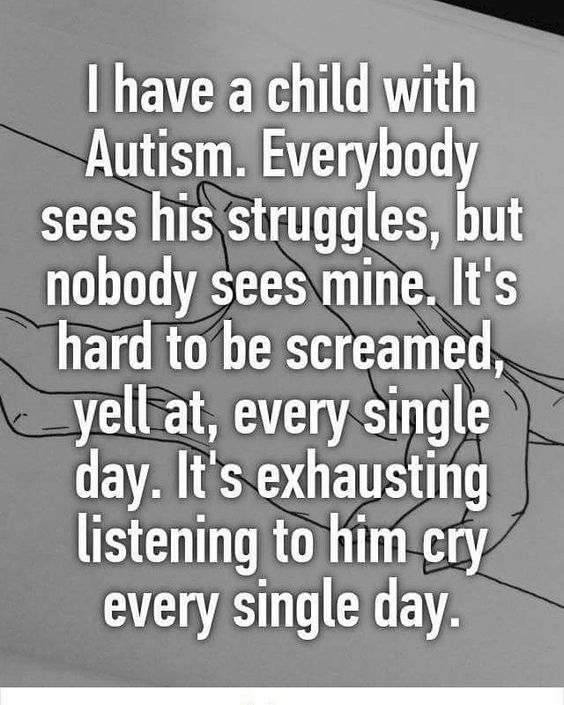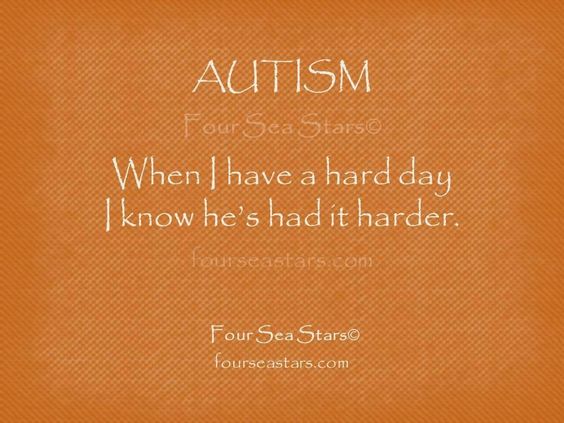It’s becoming fairly well known these days that the algorithms used by social media tend to lock us in to an ever-shrinking bubble, where we only see things that already align with our views (unless we purposefully join groups we disagree with to seek out different views). I hadn’t really thought about it much until I logged on to Facebook early this month, after about half a year with almost no social media, and belatedly realized that I hadn’t seen a single puzzle piece or “light it up blue” post for Autism Awareness day. No ableism, no “search for the cure”, no questionable medical advice – nothing.
If I had taken my Facebook feed as an accurate microcosm of the culture around me, I would have thought that everyone had finally started listening to #actuallyautistic voices and started to see autism as just a different way of being human. Obviously, that isn’t the case (living in the real world and reading news from other sites makes this pretty clear) – but it is the snapshot of the world that Facebook filtered out for me.
It was a really enlightening moment for me. This is what happens to people who keep reading articles and liking posts and joining groups that are all on one side of the political spectrum: they see more and more of what they like, and less and less of what they’ve avoided, until they begin to see the whole world filtered through those beliefs – which makes it easier to perceive anyone who doesn’t share those beliefs as ignorant, deluded, or extreme. It happens with “natural wellness” as well, until people who just wanted to incorporate preventative herbal remedies into their lives find themselves surrounded by reasons to avoid vaccines (which are medically tested in large numbers of people) and go on restrictive diets (which are not).
As uncomfortable as it can be to deliberately seek out articles, groups, and people with whom we disagree, I believe it is fundamental to balancing out our own beliefs and perceptions of the world. Even more than that, I think it is essential that those of us who are Christian do this; I don’t see how we can endeavor to create any kind of unity within the church otherwise. The unity that Jesus prayed for before the crucifixion, that Paul beseeched the Philippians to pursue – this cannot exist unless we are all willing to do the hard work of engaging with and listening to those with whom we disagree.
Lately, I’ve been reminding myself that God loves everyone, and that all of God’s creation is fearfully and wonderfully made. That means God loves the autistic person who struggles with social interactions and communication, and God loves the neurotypical parents who wishes their child were normal – without needing to change either of their neurotypes to make them more worthy of God’s love. God loves the black person pushed to the margins of society by systemic injustice, and God loves the white person who has profited from their race – without needing to change either of their skin colors. God loves the woman who has been told all her life that she can’t share her love of God from the pulpit, and God loves the man who has benefited from centuries of misogyny – without needing to change either of their genders.
I’ve been reminding myself that while God will always call us to growth, to increased wisdom and righteousness, and to greater closeness with God, God will not require us to become someone we were not created to be. God may ask us to deny ourselves so that we can love each other better; God will ask us to repent from our sin and become a new creation in Christ; but in all this God is leading us more deeply into our true selves. We may be only shadows of those selves now, but those shadows still show the shape and form of who we will be.
I believe that God does not tell autistic people that they are welcome as soon as they can stop stimming and look God in the eyes. God does not tell black people that they are welcome as soon as they straighten their hair and accept a lower place on the social ladder, or tell refugees that they need a job and a good grasp of English before they can enter God’s kingdom. God does not tell women that they must give up their desire to preach God’s word, or abandon their careers, or ignore their gifts of leadership.
(Following these lines of thought out further, though it leads me into tempestuous cultural waters, I would argue that God does not call gay people to sacrifice their romantic and sexual desires (unless a particular individual is called to celibacy like a straight person might be), nor does God call trans people to deny their gender and obey social expectations based on their sex at birth. God created us – with difference, with diversity, with disability – and all parts of us can reflect God’s image and bring God glory.)
In fact, if I am to fully grasp the scandalous immensity of God’s love, then I have to go one step further. I have to recognize that God does not simply love us in all of our human diversity: God also loves is in all of our human sinfulness. Even as God hates injustice and oppression, God loves the people committing it and wants them also to repent, and make restitution, and be reconciled to God.
My love is not this deep. I want to write people off as hopeless, beyond redemption. I want to take revenge mercilessly for the horrifying oppression and injustice I see – or I want to abandon people to their own ignorance and bigotry and discount their opinions as worthless. It is easier this way: to stay in the safe confines of my own little bubble, on Facebook and even in reality, to assume that my beliefs are right and leave the outside world to its own devices. In the face of these tendencies, what I pray is that I would trust in God’s vengeance, in God’s ability to weave justice and mercy seamlessly together, never weighing one soul as higher in value than another, and clearly seeing all our actions and all our intentions. I pray that when I work for the coming of God’s kingdom here on earth, I would strive to right wrongs and undo injustices and throw off every yoke, as Isaiah and Mary both sing – but that I would also strive to make room for repentance and new beginnings. I pray that I would value a unity that makes space for all God’s created people, in all our stages of growth, as we become more fully ourselves and more deeply God’s, and that I would always listen and love even when I vehemently disagree.
This means that when my pastor says something I disagree with – something that I think perpetuates injustice along gender lines, for example – I can not in good faith simply leave the church and find another. If I care about unity and if I care about love, I have to take that uncomfortable statement as an opportunity to open a discussion about justice and mercy and God’s crazy boundary-destroying love; to listen with love in my own heart to ideas that could hurt me; to remember that no person is so far gone that the mercy of God cannot reach them; and to take the chance that I might be the one whose beliefs are wrong or misinformed.
And it may mean that I need to find some groups on Facebook that I might be uncomfortable in 🙂


